Top 5 Health Benefits of Apricots
Apricots are a kind of stone fruit that is also known as Armenian plums. They are round and yellow, like a smaller size than peach but with the acidity of ... read more...purple plums. They're highly nutritious and offer several health advantages, including enhanced digestion and eye health. Here are the best apricot health and nutrition advantages.
-
Apricots are high in nutrients and include a variety of vitamins and minerals. Just 2 fresh apricots (70 grams) provide:
- Calories: 34
- Carbs: 8 grams
- Protein: 1 gram
- Fat: 0.27 grams
- Fiber: 1.5 grams
- Vitamin A: 8% of the Daily Value (DV)
- Vitamin C: 8% of the DV
- Vitamin E: 4% of the DV
- Potassium: 4% of the DV
Furthermore, this fruit contains beta carotene, lutein, and zeaxanthin, all of which are strong antioxidants that assist your body combat free radicals. Apricots are best eaten whole and unpeeled, as the skin contains a lot of fiber and minerals. Because the stone is inedible, it must be discarded.
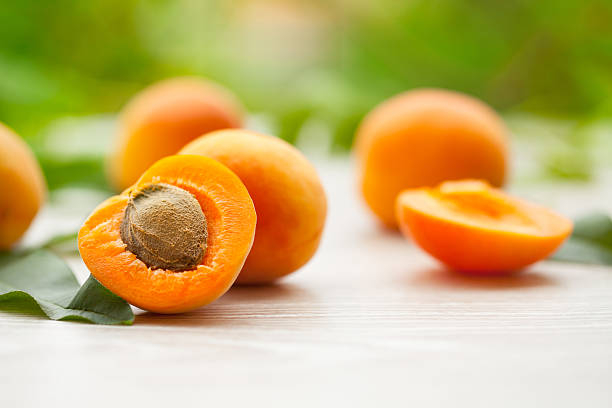
High in Nutrients and Low in Calories 
High in Nutrients and Low in Calories -
Apricots are high in antioxidants such as beta carotene and vitamins A, C, and E. Furthermore, they are high in flavonoids, a kind of polyphenol antioxidant that has been demonstrated to protect against diseases like as diabetes and heart disease. Apricots' major flavonoids include chlorogenic acids, catechins, and quercetin.
These substances serve to neutralize free radicals, which are toxic molecules that cause oxidative stress and damage to your cells. Obesity and many chronic illnesses, such as heart disease, are connected to oxidative stress. Researchers established a scoring system to quantify changes in levels of inflammatory markers in one trial including 2,375 participants. They discovered that high flavonoid and anthocyanin consumption was related to a 42% and 73% reduced inflammatory score, respectively. A high flavonoid intake was also associated with a 56% lower oxidative stress score.
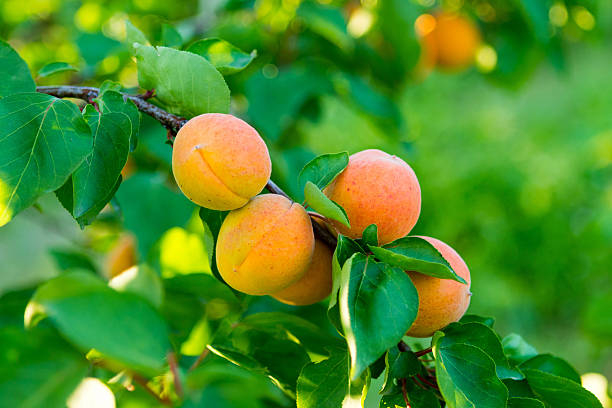
High in Antioxidants 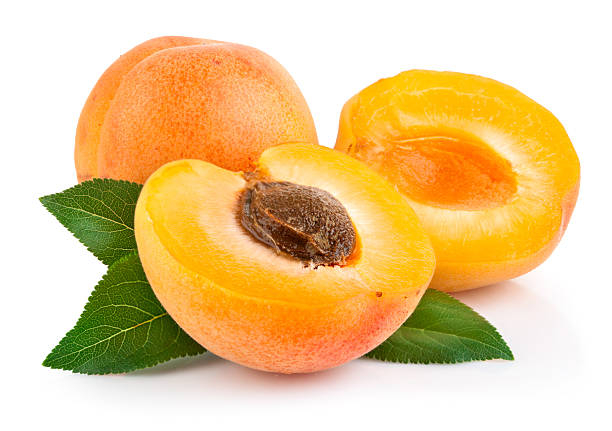
High in Antioxidants -
Apricots may be beneficial to your skin. Environmental factors such as the sun, pollution, and cigarette smoke are the primary causes of wrinkles and skin damage. Furthermore, studies show a clear correlation between UV radiation exposure, sunburns, and your risk of melanoma, a lethal form of skin cancer. Notably, you may combat some of this skin damage by eating a nutritious diet rich in antioxidants, such as apricots.
This fruit contains vitamins C and E, both of which may benefit your skin. By neutralizing free radicals, vitamin C, in particular, protects against UV damage and environmental contaminants. Furthermore, this vitamin promotes the formation of collagen, which provides your skin with strength and flexibility. A vitamin C-rich diet can help your skin recuperate from UV damage and prevent wrinkles. Another apricot ingredient, beta carotene, may protect against sunburn. In a 10-week trial, beta carotene supplementation decreased sunburn risk by 20%. While sunscreen is always recommended, eating apricots may provide extra protection.
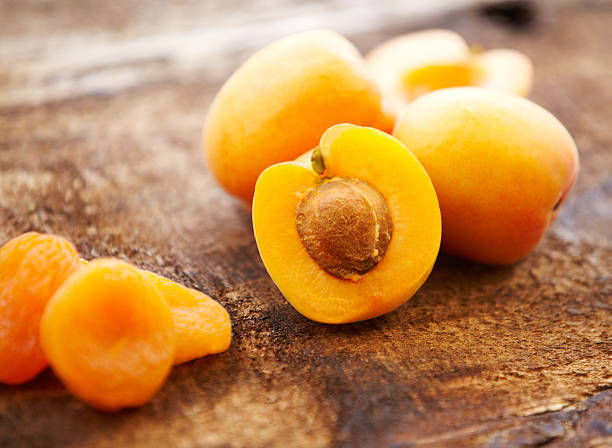
Boost Skin Health 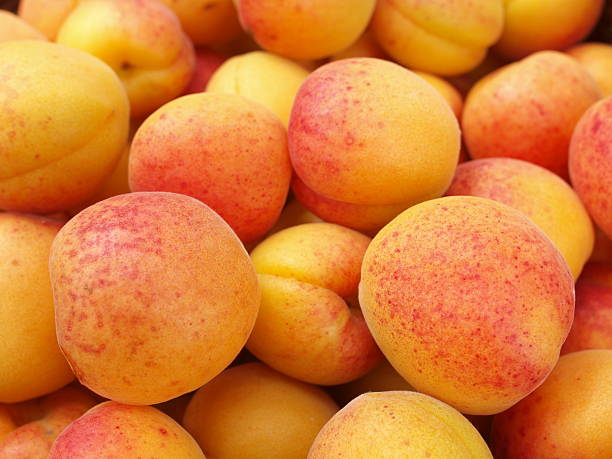
Boost Skin Health -
Apricots may be beneficial to intestinal health. One cup (165 grams) of sliced apricots has 3.3 grams of fiber, which is 8.6 percent of the daily value for males and 13.2 percent of the daily value for women. Apricots have soluble and insoluble fiber. The soluble kind dissolves in water and contains pectin, gums, and long chains of sugar known as polysaccharides, whereas the insoluble type does not dissolve in water and contains cellulose, hemicellulose, and lignin.
Apricots are high in soluble fiber, which is essential for maintaining normal blood sugar and cholesterol levels. Fiber also slows the passage of food through your digestive tract and nourishes your good gut flora. Obesity risk is connected to healthy gut microbiota. While a single apricot (35 grams) has just 0.7 grams of fiber, it's easy to consume many in a single sitting.

Promote Gut Health 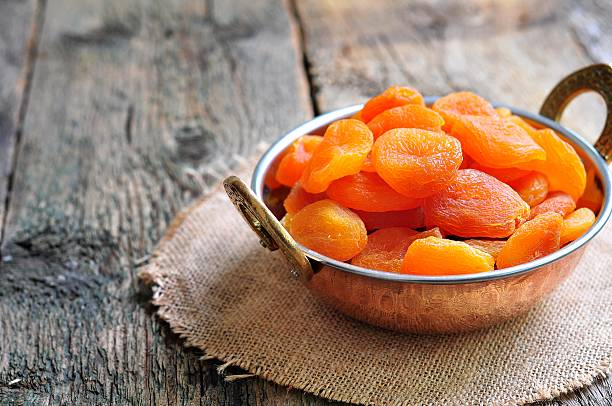
Promote Gut Health -
Apricots, like other fruits, are high in water, which can help control blood pressure, body temperature, joint health, and heart rate. One cup (165 g) of sliced fresh apricots contains around 2/3 cup (142 ml) of water. Because most individuals do not consume enough water, eating fresh fruit might help you meet your daily requirements. Dehydration reduces blood volume, requiring your heart to work harder to pump blood. Furthermore, being hydrated permits waste products and nutrients to move throughout your body. Furthermore, eating apricots can be a simple approach to restoring both water and electrolyte loss after exercise, as this fruit has high levels of both water and potassium.
Apricots contain a lot of potassium, which is a mineral that also acts as an electrolyte. It is in charge of delivering nerve messages as well as controlling muscle contractions and fluid equilibrium in your body. Two apricots (70 grams) contain 181 mg of this mineral or 4% of the DV. Because potassium works in tandem with salt to maintain fluid balance, appropriate consumption may aid in the prevention of bloating and the maintenance of healthy blood pressure. A study of 33 trials discovered that a potassium-rich diet considerably decreased blood pressure and resulted in a 24% lower risk of stroke.
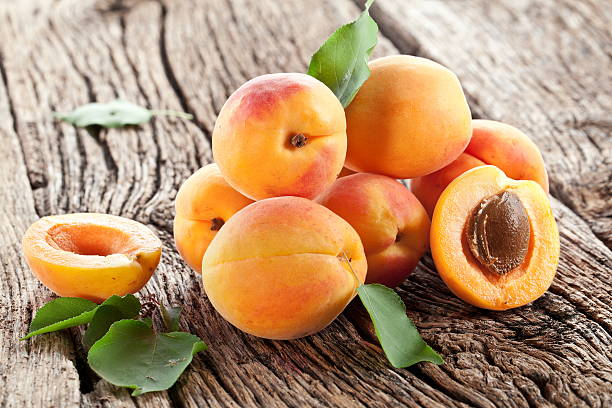
High in Water and Potassium 
High in Water and Potassium


























